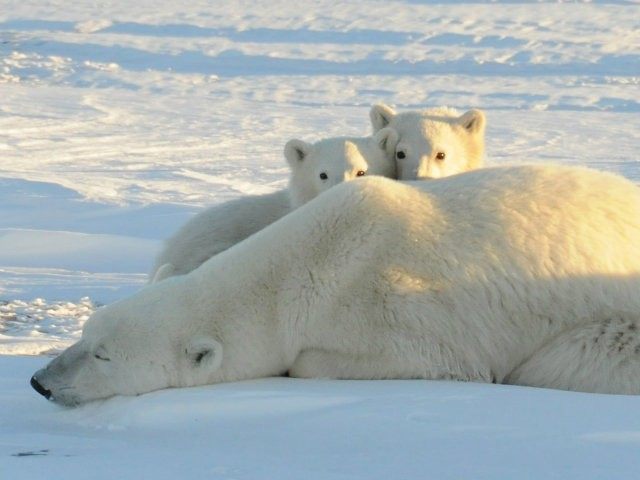It is that time of year again. Winter is almost over for the Northern Hemisphere and summer is nearly upon us. Thus begins the annual ritual of hand-wringing over the climate alarmist’s favourite mascot, the polar bear.
Step forward Andrew Derocher, polar bear biologist. Derocher is a Canadian scientist who routinely spreads unwarranted alarm about polar bear populations; specifically in the context of climate change. This year is no exception.
The Arctic sea ice extent for March this year was modestly below the 30-year average. This has irresponsibly been reported by Derocher as a “huge loss” for polar bears. It really isn’t. Not least because most of the reduced ice area was in the Sea of Okhotsk and Baltic Sea. And the bears do not actually live there.
Zoologist and polar bear expert, Dr Susan Crockford takes Derocher to task. In contrast to him, she has given the bears an “excellent” prognosis for this year. The spring / early summer period, she says, is the most critical time for feeding, during which they consume the majority of their annual food supply. The sea ice in areas where the bears actually hunt is particularly healthy this year. One area, the Davis Strait (south of Greenland), has the fourth highest extent on record for this month. Note that this hunting period is over well before the Arctic enters reaches its peak melt, usually in mid-September.
On reading Dr. Crockford’s account it is clear that Derocher really should know better. Why? Because Derocher is one of the sources Dr. Crockford purposefully cites on the polar bear feeding cycle. This is part of a commonplace pattern I have noticed in the climate debate where researchers present one thing to a scientific audience and quite another to the media and general public. Dr. Crockford is in no doubt about Derocher’s intentions here either, accusing him of being more concerned with “conservation activism” rather than robust science.
All of this is worth bearing in mind (no pun intended – well maybe) as the horror stories about Arctic summer melt come forth in the near future. The Arctic will be going through its perfectly natural cyclical melt and the polar bears will be well fed. By the time the alarm over nothing is raised, in fact, they will have gorged on many cute baby seals during the spring. This is probably why the latter aren’t the poster children for climate change and polar bears are.

COMMENTS
Please let us know if you're having issues with commenting.